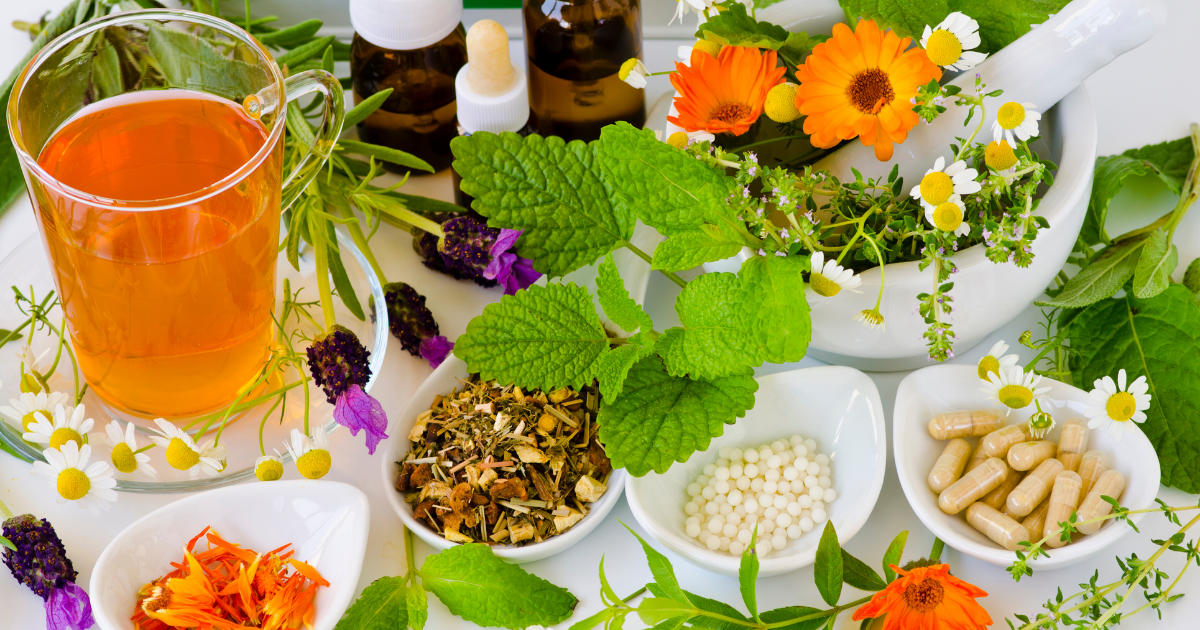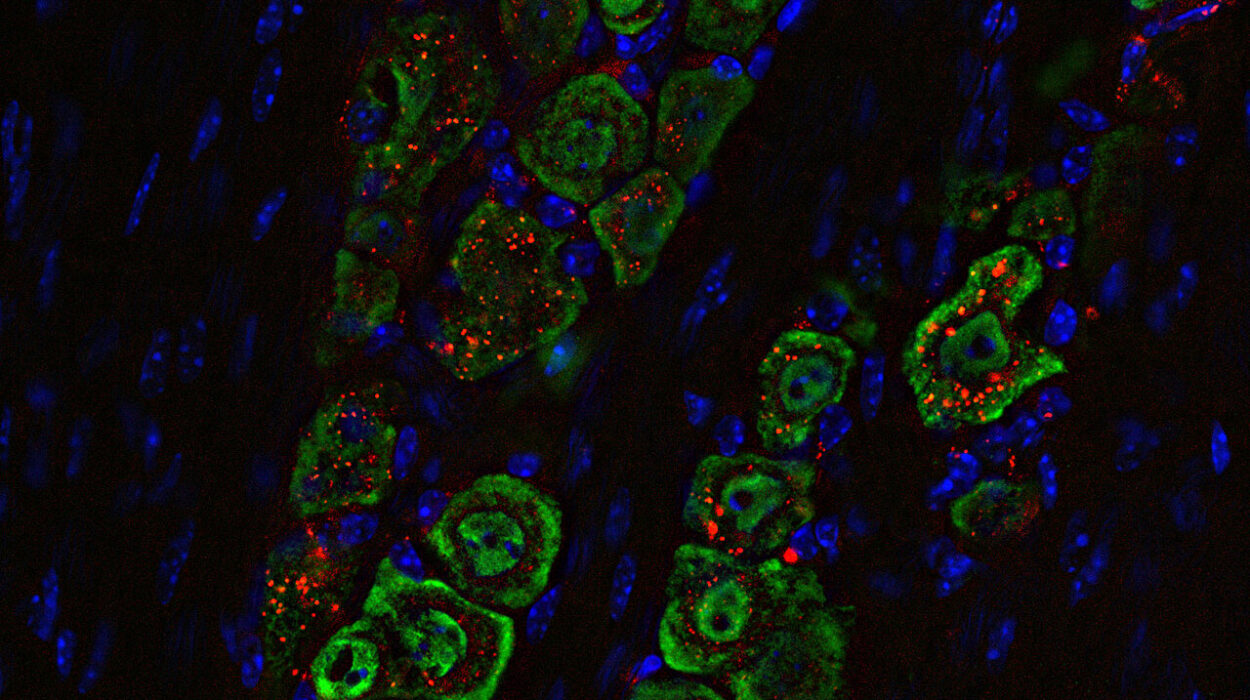For centuries, humans have turned to nature for healing. Before the advent of modern pharmaceuticals, communities across the world relied on plants, roots, seeds, and flowers to treat illness, ease discomfort, and restore balance. Even today, many people feel a deep connection to herbal medicine—it feels “natural,” grounded in tradition, and perhaps safer than synthetic drugs. During pregnancy, this appeal often intensifies. Expectant mothers seek gentle ways to soothe nausea, calm anxiety, promote sleep, or strengthen their bodies. The idea of turning to herbs instead of pills can seem both comforting and wise.
But nature is complex. Not every plant that grows in the soil is safe for a pregnant body. In fact, some herbs can be as powerful as pharmaceuticals, influencing hormones, uterine muscles, or blood flow in ways that may endanger both mother and child. The line between remedy and risk can be thin.
Understanding herbal remedies during pregnancy is not about rejecting them altogether—it is about respecting their power. To make wise choices, we must recognize that “natural” does not always mean “harmless.”
Why Safety in Pregnancy Matters More
Pregnancy is unlike any other time in a person’s life. A woman’s body undergoes dramatic changes: hormones surge, the immune system adapts, blood volume increases, and nearly every organ works overtime. In this delicate state, even small substances can have amplified effects. What might be safe for the average adult may be risky for someone carrying a developing fetus.
Moreover, pregnancy is not just about one body. Every herb that a mother consumes has the potential to cross the placenta, influencing the tiny being growing within her. Some herbs can trigger uterine contractions, increasing the risk of miscarriage or preterm labor. Others may affect fetal development, interfere with nutrient absorption, or interact with prescribed medications.
This is why caution matters so deeply. Herbal remedies should never be dismissed as trivial, nor should they be embraced without thought. They should be approached with the same care we give to prescription drugs, especially during pregnancy.
The Emotional Dilemma of Expectant Mothers
Many pregnant women find themselves in a difficult place. On one hand, they want to avoid strong medications that might pose risks. On the other, they face symptoms—morning sickness, insomnia, anxiety, digestive issues—that can be overwhelming. Family traditions may encourage herbal teas or remedies that have been passed down for generations. Friends may offer suggestions with the best of intentions.
The emotional weight of these decisions is heavy. A mother-to-be wants to do everything right. She wants relief, but she also wants safety. She may feel torn between trusting tradition and listening to modern medicine, between honoring her intuition and fearing the unknown.
This is where knowledge becomes empowering. By understanding which herbs are safe, which are risky, and why, women can make informed choices that honor both their well-being and the safety of their baby.
The Dual Nature of Herbs
To grasp why herbal safety is so complex, it helps to remember that plants are chemical factories. They produce compounds not only to grow but also to defend themselves against pests, attract pollinators, and survive harsh conditions. Some of these compounds are beneficial to humans—antioxidants, vitamins, anti-inflammatory agents. Others are toxic, capable of harming the liver, stimulating the uterus, or affecting the nervous system.
For example, peppermint leaves can soothe nausea, yet pennyroyal—a close relative in the mint family—can cause dangerous uterine contractions and even organ damage. Chamomile may bring calm and aid sleep, yet in high doses it can act as a blood thinner, increasing the risk of bleeding complications.
The very strength that makes herbs effective also makes them risky. Just like prescription drugs, herbs can alter body chemistry in significant ways. The difference is that pharmaceuticals are tightly studied, dosed, and regulated, while herbs often vary in strength depending on how they’re grown, harvested, and prepared.
Herbs Commonly Considered Unsafe in Pregnancy
Some herbs are particularly concerning for pregnant women because of their effects on the uterus, hormones, or fetal development. While the list is not exhaustive, the following categories illustrate why caution is essential.
Uterine Stimulants
Certain herbs have long been used to “bring on” menstruation or induce labor. During pregnancy, however, these same effects can be dangerous. Herbs like pennyroyal, mugwort, black cohosh, and blue cohosh can stimulate uterine contractions, raising the risk of miscarriage or premature birth.
Hormone-Altering Herbs
Plants such as dong quai, licorice root, and wild yam contain compounds that can influence estrogen or progesterone. While this might be useful in other contexts, during pregnancy these hormonal shifts can interfere with fetal development or pregnancy stability.
Toxic Alkaloid-Containing Herbs
Some herbs, including comfrey and certain types of borage, contain pyrrolizidine alkaloids—compounds that can damage the liver. For a pregnant woman, whose liver is already under stress, and for a fetus with an immature detoxification system, these compounds can be especially harmful.
Herbs That Thin the Blood
Ginkgo biloba, garlic in high doses, and large amounts of ginger can increase bleeding risks. During pregnancy and childbirth, where hemorrhage is already a danger, this effect can be life-threatening.
Laxative and Cathartic Herbs
Senna, cascara, and aloe latex can stimulate the bowels so strongly that they may also affect uterine muscles. For some women, this can trigger cramping or contractions.
Herbs Often Mistaken as Safe
Because many herbs are sold in teas, supplements, or natural stores, they are often assumed to be harmless. Yet the very fact that they are widely available can be misleading. A tea marketed for relaxation may contain multiple herbs, some of which are not recommended in pregnancy. Supplements may have higher concentrations than traditional preparations, amplifying risks.
Even herbs with a reputation for gentleness require scrutiny. For example, raspberry leaf tea is sometimes recommended in the later stages of pregnancy to tone uterine muscles, but using it too early could potentially trigger contractions. Chamomile, beloved for its soothing qualities, may interfere with blood clotting or cause allergic reactions in sensitive individuals.
The key is not to assume safety based on popularity. Each herb must be evaluated on its own properties, dosage, and timing during pregnancy.
Safe Doesn’t Mean Always Safe
There are herbs that appear relatively safe for many pregnant women when used appropriately. Ginger, for instance, has been studied for its ability to reduce nausea and vomiting. Peppermint may soothe indigestion. Lemon balm might relieve mild anxiety. But even here, context matters. Large doses, concentrated extracts, or prolonged use may shift an herb from safe to questionable.
Individual differences also play a role. One woman may tolerate ginger tea without issue, while another may experience heartburn or reflux. Allergies, pre-existing conditions, and concurrent medications all influence whether an herb is appropriate.
This is why even with “generally safe” herbs, guidance from a qualified healthcare professional is essential.
The Hidden Risks of Herbal Supplements
Unlike pharmaceuticals, herbal products are not always strictly regulated. Quality can vary dramatically between brands. Some supplements may contain contaminants, such as heavy metals, pesticides, or even other herbs not listed on the label. Dosages may be inconsistent, with one capsule containing much more or much less than another.
For a pregnant woman, these uncertainties magnify risk. What looks like a harmless capsule on the shelf could carry hidden dangers. Choosing trusted brands, verified by third-party testing, is important, but even then, professional guidance is necessary.
The Role of Culture and Tradition
Across the world, cultural traditions shape how herbs are used in pregnancy. In some regions, women drink herbal teas to ease labor. In others, certain roots are consumed to promote fertility or protect against miscarriage. These traditions often carry deep emotional significance, connecting women to their mothers, grandmothers, and ancestors.
It is important to approach these practices with respect while also applying modern scientific understanding. Not every tradition is harmful, but not every tradition is safe. The best approach combines honoring cultural wisdom with verifying safety through evidence.
Conversations with Healthcare Providers
One of the biggest challenges for pregnant women considering herbs is the fear of being judged by healthcare providers. Some women stay silent, not disclosing their use of teas, tinctures, or supplements. Yet this silence can be dangerous. Interactions between herbs and medications are real, and without full knowledge, doctors and midwives cannot provide the best care.
Healthcare providers, in turn, must create safe spaces for honest conversation. When women feel heard and respected, they are more likely to share their practices, making it easier to balance tradition, comfort, and safety.
The Emotional Weight of Avoidance
It can feel disappointing to give up herbs that family members, friends, or cultural traditions encourage. A woman may feel like she is losing a connection to her roots or missing out on natural relief. It is important to acknowledge this emotional weight. Avoidance is not about distrust of nature but about protection. Choosing safety does not mean rejecting heritage—it means adapting it to modern knowledge, preserving both health and tradition in ways that serve the next generation.
Looking Beyond Herbs for Relief
When certain herbs are deemed unsafe, women can explore other strategies for pregnancy comfort. Ginger may help with nausea, but so can small, frequent meals, avoiding triggers, and staying hydrated. Anxiety may be eased through breathing exercises, meditation, or gentle prenatal yoga. Digestive discomfort might respond to dietary adjustments.
Modern medicine also offers safe options in many cases. Combining lifestyle adjustments with approved medications or therapies can provide relief without unnecessary risk. Herbs may still play a role, but always as part of a bigger picture that prioritizes both mother and baby.
The Future of Research
One of the difficulties in discussing herbal safety during pregnancy is the lack of comprehensive research. Because of ethical concerns, many herbs have not been tested in pregnant women. Much of the data comes from animal studies, traditional use, or isolated reports. This creates a landscape of uncertainty, where some risks are well-established and others are only suspected.
As research advances, more clarity will emerge. Already, some studies are shedding light on which herbs can safely support pregnancy and which should be avoided altogether. Until then, caution remains the wisest path.
Conclusion: Respecting Nature, Protecting Life
Herbal remedies are gifts of nature, carrying both healing potential and hidden dangers. During pregnancy, the stakes are uniquely high, requiring careful balance between tradition, comfort, and safety. Some herbs may offer gentle support, but others can cause harm, sometimes in ways not immediately visible.
To navigate this landscape, pregnant women must combine the wisdom of nature with the knowledge of science. This means questioning assumptions, seeking professional guidance, and remembering that the safest choice is not always the most “natural” one.
Pregnancy is a time of vulnerability but also of profound strength. By making thoughtful, informed choices about herbal remedies, mothers honor both their own well-being and the sacred life they carry within.






